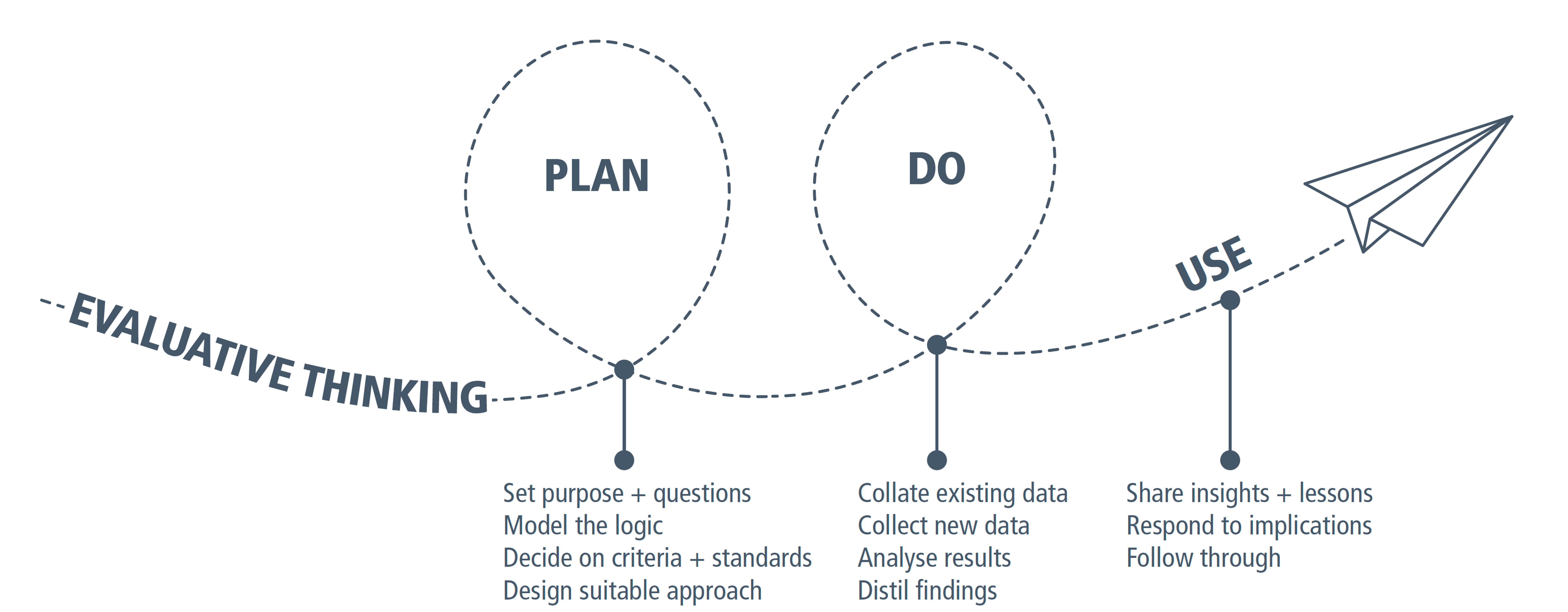Plan, do, use
The image below is a summary of the flow of work in an evaluation effort.

You can download a high resolution evaluation process flow image;
Explore below to read the detailed step-by-step process flow.
Evaluative thinking is not a stage in the process. Rather, it is the mindset and skillset that motivates and fuels evaluative activity.
Rushing into evaluation without a clear plan, risks the collection of data you can't use and having questions you can't answer. Much like the assessment component of a unit of learning, evaluation can be planned well in advance and evaluation stages built into projects you develop.
The key planning topics include:
Evaluation requires systematic analysis of relevant data in order to come to a judgement.
It is important to use existing data before collecting new data; or at least understand the strengths and limitations of existing data before making plans to collect new data. Find out more on:
- analysing existing data sets in schools
- collecting new data, including surveys, interviews, focus groups and observation.
When developing an evaluation, it is important to plan with the end in mind:
- who is the audience for the evaluation?
- what are they interested in, and why?
- what decisions will be informed by the evaluation, and when will these be made?
Having arrived at your findings, it is important to communicate these effectively and sensitively, to ensure that the insight and evidence quickly finds its way into practice.